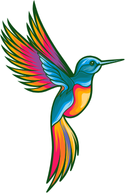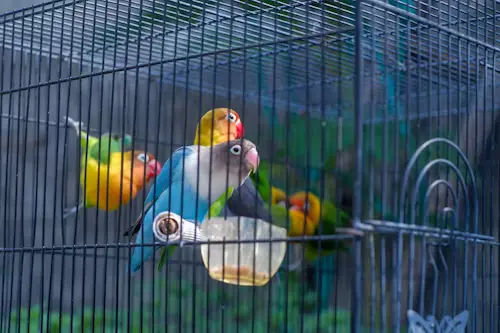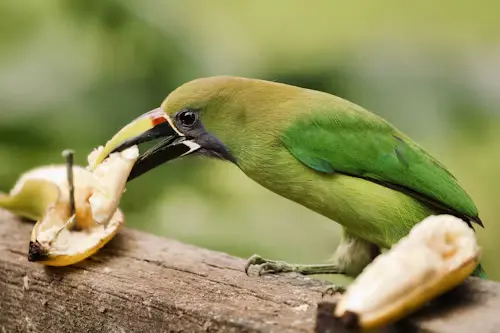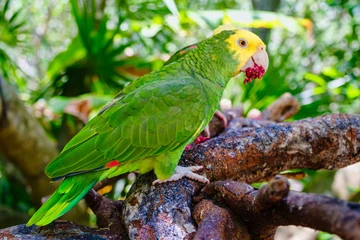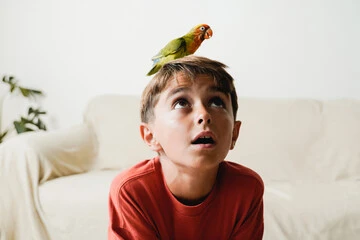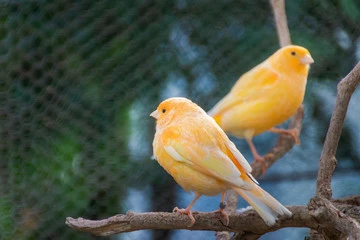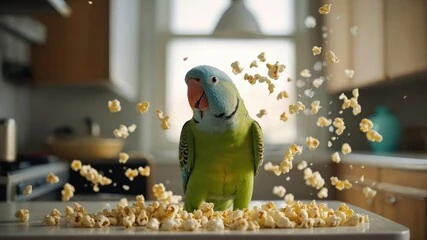Bird Food: How to Keep Birds Happy and Energized
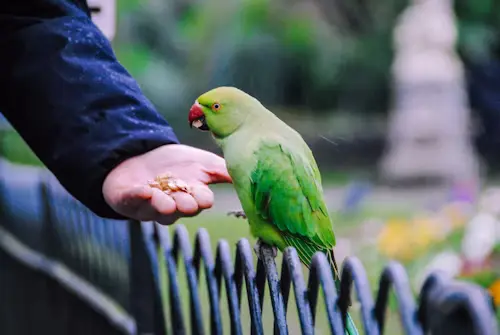
Watching birds flock to your yard or hearing your pet parrot chirp happily while munching on a snack is one of life’s small joys. But just like humans, birds need the right kind of nutrition to thrive. Whether you’re feeding wild birds or your pet parakeet, choosing the right bird food makes all the difference.
From seeds and pellets to homemade treats, this guide will cover everything you need to know about bird food types, DIY recipes, and expert recommendations to keep your avian friends well-fed and content.
Table of Contents
Types of Bird Food: What Should You Feed Birds?
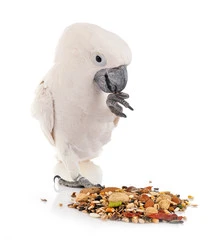
Not all birds eat the same food. Different species have unique dietary needs, so it’s essential to provide a balanced mix. Here’s a breakdown of the most common types of bird seed and other bird-friendly meals.
1. Seeds & Grains
- Black-oil sunflower seeds – A favorite among many birds, including cardinals, finches, and chickadees.
- Nyjer (thistle) seed – Small, nutrient-dense seeds loved by finches, especially goldfinches.
- Millet – Often used in wild bird mixes; popular with sparrows, doves, and quails.
- Safflower seeds – Less attractive to squirrels but loved by cardinals and grosbeaks.
Pro Tip: Avoid seed mixes with lots of filler like milo or wheat—many birds just toss them aside.
2. Pellets (For Pet Birds)
Pellets are a great way to ensure pet birds get all the essential nutrients they need. Brands like Harrison’s, Zupreem, and Lafeber offer balanced formulas for different species.
3. Fresh Fruits & Veggies
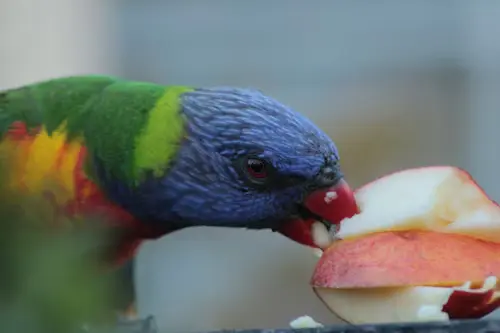
Birds need more than just seeds! Some safe options include:
- Apples (remove seeds)
- Berries
- Carrots
- Leafy greens (spinach, kale)
Avoid avocados, chocolate, and onions—they’re toxic!
4. Protein Sources
- Egg food (for breeding birds)
- Cooked beans (no salt!)
- Mealworms (loved by robins, bluebirds, and wrens)
For more details on balanced diets for specific birds, check out our Quaker parrot food guide.
Homemade Bird Food Recipes: Easy & Nutritious DIY Treats
Store-bought bird food is convenient, but homemade options can be healthier—and more fun to prepare. Here are some easy recipes to try.
1. Simple Seed & Nut Mix
Ingredients:
- Sunflower seeds
- Chopped almonds or walnuts
- Dried cranberries (unsweetened)
- Crushed eggshells (for calcium)
Mix and serve in a feeder or scatter on a tray.
2. DIY Suet Blocks
Suet is an excellent energy source, especially in winter.
What You’ll Need:
- 1 cup lard or peanut butter
- 1 cup birdseed
- ½ cup cornmeal
- Optional: Dried fruit, chopped nuts
Steps:
- Melt the lard or peanut butter.
- Stir in seeds and cornmeal.
- Pour into molds (muffin tins work great).
- Freeze until solid.
3. Fruit Kabobs (For Pet Birds)
Skewer small pieces of bird-safe fruits (grapes, berries, melon). Hang it in the cage for interactive feeding.
Bird Food for Pet Birds vs. Wild Birds: Key Differences
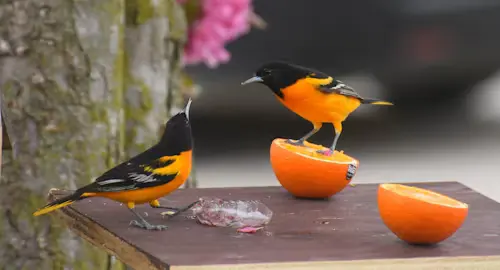
Many people wonder—can you feed wild bird food to pet birds? The answer is: it depends.
Key Considerations:
✅ Wild bird seed mixes often have high-fat seeds (like sunflower) that should be limited for pet birds to prevent obesity.
🚫 Avoid cheap filler seeds (milo, wheat), which wild and pet birds both tend to ignore.
🧪 Pellets vs. seeds: Pet birds do best on a pellet-based diet supplemented with fresh foods, while wild birds rely more on natural seeds and insects.
For a detailed comparison, see this wild bird food guide.
FAQs About Bird Food
1. Can chickens eat wild bird food?
While they can eat it, wild bird seed lacks essential nutrients for chickens and is too high in fat for regular feeding.
2. What’s the best all-around seed for backyard birds?
Black-oil sunflower seeds attract the widest variety of birds.
3. How often should I change my bird’s food?
Replace seeds and fresh food daily to prevent spoilage and bacteria growth.
4. Are spicy bird seed blends safe?
Yes! Spicy mixes (with chili) deter squirrels but don’t bother birds, since they can’t taste the heat.
Final Thoughts
Feeding birds—whether wild or pets—is rewarding and beneficial for their health. By choosing the right bird food, mixing in fresh treats, and avoiding harmful ingredients, you can help your feathered friends thrive.
What’s your bird’s favorite snack? Share your experiences or questions in the comments below! And if this guide helped you, don’t forget to share it with fellow bird lovers. 🐦💚
